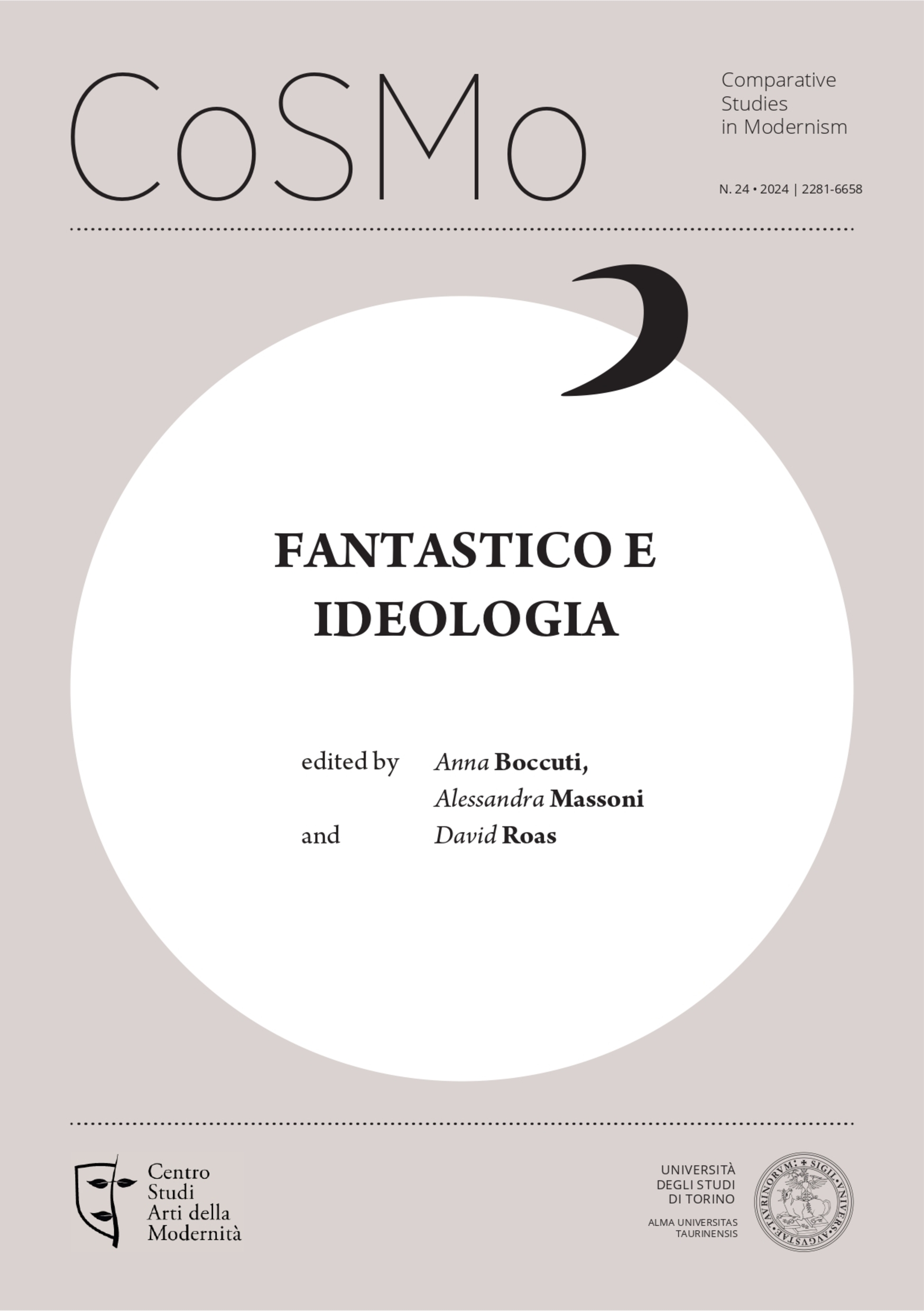Post 9/11 Fears and the Latin American Fantastic
The Enemy Within, Scapegoats and Political Ideology in Samanta Schweblin’s “Distancia de Rescate”
DOI:
https://doi.org/10.13135/2281-6658/10687Parole chiave:
Argentine Literature, Fantastic, Weird, 9/11, Other, Feminism, EcologyAbstract
The relationship between fantastic narrative and ideology has rarely and obliquely been the subject of the ever-growing literature on the genre. In this paper, I read the New Weird in Latin America (Sanchiz & Bizzarri 2020) as a site uniquely able to register – but also actively engage in – epochal shifts that are having a profound impact on our relationship to ideology. Žižek’s reading of the era-defining changes produced by the 9/11 terror attacks is mobilized to explore three key elements of Samanta Schweblin’s Distancia de rescate: first, its Weird treatment of the “enemy within” and its reconfiguration of the Cortazarian trope of the “casa tomada”; second, its use of a very particular double-first-person narrator who refuse(s) or fail(s) to identify a real (political) enemy and instead scapegoat(s) multiple (female) Others; third, the impact of this same hallucinatory narrative voice on the perception of the shocking ecological catastrophe which, though central to the plot, undergoes what Žižek terms “derealization.” In turn, these readings offer new perspectives on how the Argentine and Latin American New Weird are opening up new forms of the fantastic that are able to better account for the impacts of contemporary (un)realities on gendered subjectivities; and might, ultimately, be able to offer ways of narrating ourselves out of ecosystem collapse.
Downloads
##submission.downloads##
Pubblicato
Fascicolo
Sezione
Licenza
Gli autori mantengono i diritti sulla loro opera e cedono alla rivista il diritto di prima pubblicazione dell'opera, contemporaneamente licenziata sotto una Licenza Creative Commons - Attribuzione che permette ad altri di condividere l'opera indicando la paternità intellettuale e la prima pubblicazione su questa rivista.







